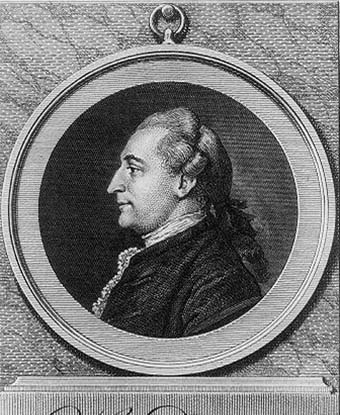Last updated: December 27, 2019
Person
William Henry Drayton

Library of Congress
William Henry Drayton was born in September 1742 at Drayton Hall in St. Andrew's Parish, near Charleston, South Carolina. He was the son of John Drayton, a wealthy planter and member of the Provincial Council, and Charlotta Bull, daughter of Lieutenant Governor William Bull. At the age of ten, he went to England to complete his education, returning home in 1763 at the urging of his father before he finished his degree at Balliol College, Oxford. In 1764, he married Dorothy Golightly, one of the wealthiest heiresses in the colony. Their union produced four children, of whom only Mary and John, a future governor of South Carolina, survived childhood.
Financially secure and politically well connected, Drayton sought public office. He won a seat in the South Carolina Royal Assembly in 1765 but lost it in the following election. In July 1769, Drayton wrote a polemic in the South Carolina Gazette opposing the popular extralegal nonimportation association, established in defiance of the Townshend Duties, as "a base, illegal decree" designed to "ruin and overthrow our happy constitution." The letter started a fiery debate in which nonimportation leaders won, resulting in Drayton's social, economic, and political ostracism. In January 1770, he sailed for England, where he hoped his views would find a receptive audience.
In England, Drayton was introduced at court as a supporter of the crown's prerogative. To further display his loyalty, Drayton published in 1771 The Letters of Freeman, a compilation of his newspaper articles on the nonimportation debate. His allegiance earned him a position on the Provincial Council in Charleston. However, Drayton's aspiration for additional posts was frustrated when the Ministry appointed Englishmen to numerous offices that Drayton sought for himself. The 1774 passage of the Coercive Acts convinced Drayton that Great Britain threatened American liberty and property. In August, Drayton vented his frustrations with the crown and Parliament in A Letter from Freeman, a pamphlet addressed to the First Continental Congress in which he outlined American rights and proposed reforms of the British Empire that denied Parliament's jurisdiction over the colonies. His change in political allegiance prompted his uncle, William Bull, to suspend him from the Provincial Council in early 1775.
Drayton's views made him one of the most popular Whigs in the colony. He won a seat in the Provincial Congress in January 1775 and soon after sat on all important revolutionary committees. Drayton used his powers to lead raids against the city's royal post office and armories, thereby obtaining important information regarding the intentions of the British and arms for the patriot forces. During the summer of 1775, Drayton led a five-man commission on a six-week tour of the backcountry to suppress the large number of loyalists in the region. In the face of great odds, Drayton managed to procure a treaty of neutrality from loyalist leaders at a conference in the town of Ninety Six.
Whig leaders in Charleston rewarded Drayton for his achievement by electing him president of the Provincial Congress. In this role he encouraged the creation of a navy, raising and training troops, and erecting fortifications. Speaking to the Provincial Congress on February 6, 1776, Drayton became the first prominent South Carolinian to openly call for the establishment of a new government and separation from Great Britain. Drayton played a role in drafting the new constitution, which replaced the royal charter, and the new state constitution of 1778. He also vocally called for South Carolina's union with Georgia, which was extremely unpopular in Georgia. In January 1778, Drayton proposed numerous amendments to the Articles of Confederation, which included an alternative plan of confederation augmenting the power of the individual states and protecting southern interests.
Elected to the Continental Congress in 1778, Drayton opposed all British efforts at reconciliation. He gave strong support to the Continental Army and advocated harsh treatment of Native Americans allied with the British. He served on nearly ninety ad hoc and five standing committees during his seventeen months in Congress. In his spare time, Drayton complied documents for a planned history of the Revolution, a project left unfinished when he died of typhus in Philadelphia on September 3, 1779. Originally interred at Christ Church Cemetery in Philadelphia, his body was returned to his family's ancestral home two hundred years after his death.
